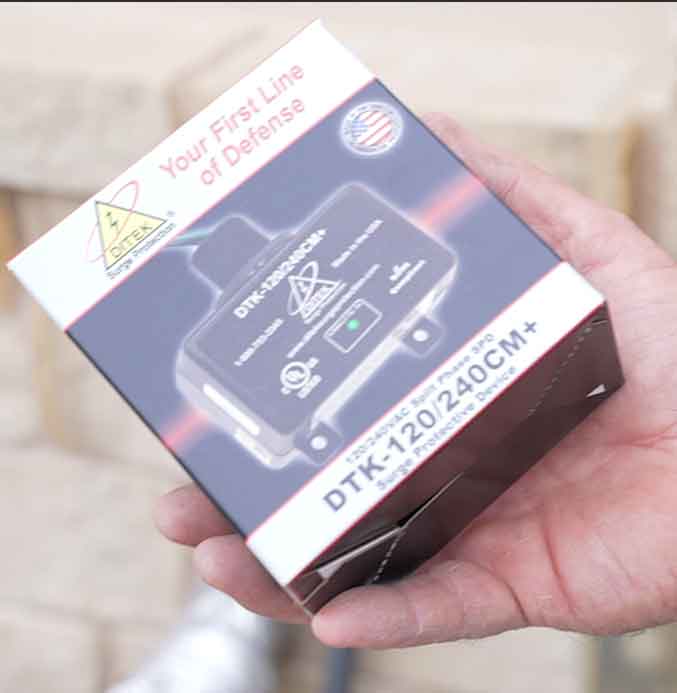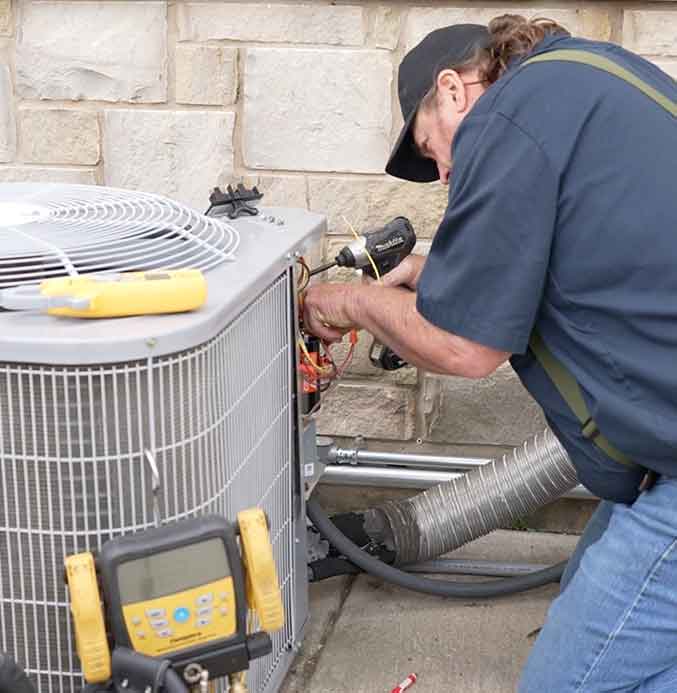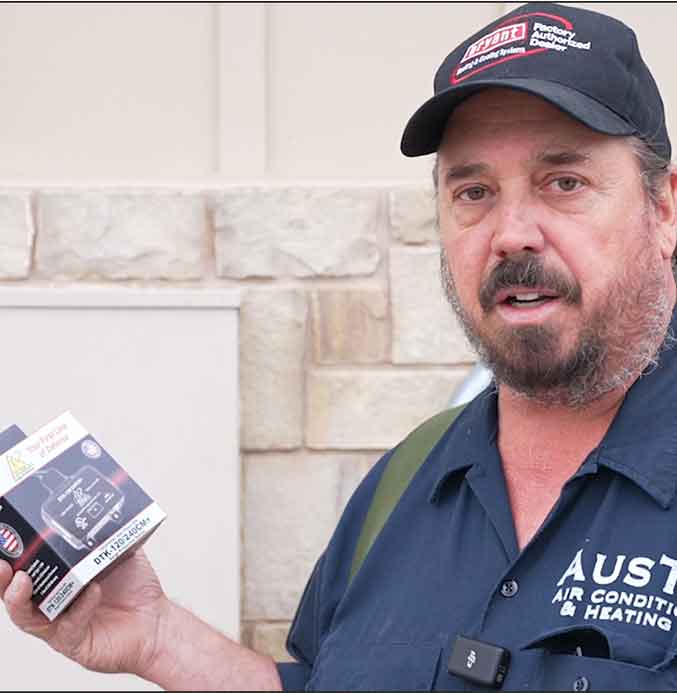Why Surge Protectors Matter
Lightning strikes can cause sudden power surges, sending a spike of electricity through your home’s wiring. This can easily overwhelm and fry the sensitive electronics within your HVAC unit, particularly the circuit board. The result? You could be looking at thousands of dollars in repairs or a complete system replacement. Installing a surge protector offers a simple and cost-effective insurance policy against such a scenario.
The Cost of Not Having Protection:
- Repair Costs: A lightning strike can damage the HVAC circuit board, compressors, and other essential components. Repairs can run from a few hundred to several thousand dollars, depending on the extent of the damage.
- Replacement Costs: In some cases, the damage may be so severe that you need to replace the entire HVAC unit. Replacing a central air system can cost anywhere from $3,000 to $7,000 or more.
- Inconvenience: Beyond the financial hit, losing your HVAC system during a Texas summer can be incredibly uncomfortable, leaving you and your family sweltering in the heat while you wait for repairs or replacement.
Benefits of Surge Protectors
- Cost-Effective Protection: Surge protectors for HVAC units are relatively inexpensive. This is a small price to pay compared to potential repair or replacement costs.
- Peace of Mind: Knowing your HVAC unit is protected from sudden electrical surges allows you to enjoy Texas thunderstorms without the anxiety of potential damage to your system.
- Extended HVAC Lifespan: By shielding your unit from power surges, you help extend its operational lifespan, ensuring it runs efficiently and effectively for many years.


How Surge Protectors Work
Surge protectors function by diverting excess voltage away from your HVAC unit when a power spike occurs. They are designed to detect irregular electrical activity and react within nanoseconds, providing a barrier that prevents the surge from reaching and damaging your unit’s critical components.
The Installation
Installing a surge protector is straightforward and can be performed by a qualified HVAC technician. During a routine maintenance visit, the technician can add the surge protector to your unit, ensuring it’s properly integrated into your home’s electrical system. This minor addition can make a significant difference in protecting your investment.

Conclusion: An Ounce of Prevention
In Georgetown, Texas, and surrounding areas, where thunderstorms are a common occurrence, safeguarding your HVAC unit with a surge protector is not just a precaution—it’s a necessity. This small investment can save you thousands in potential repairs and replacements, providing a reliable defense against the unpredictable power of nature. Don’t wait for a costly lesson; protect your HVAC system today and enjoy the peace of mind that comes with knowing your home is shielded against electrical surges.
Peace of mind…
Storms happen all the time and they’re unpredictable.
“We’ve had a lot of storms lately, and just recently, a customer’s house was struck by lightening and blew our their compressor board. Thankfully, it was covered under warranty but if not, this could have cost them over $6,000 to repair”
David Smith
Owner | Austex Air Conditioning & Heating





